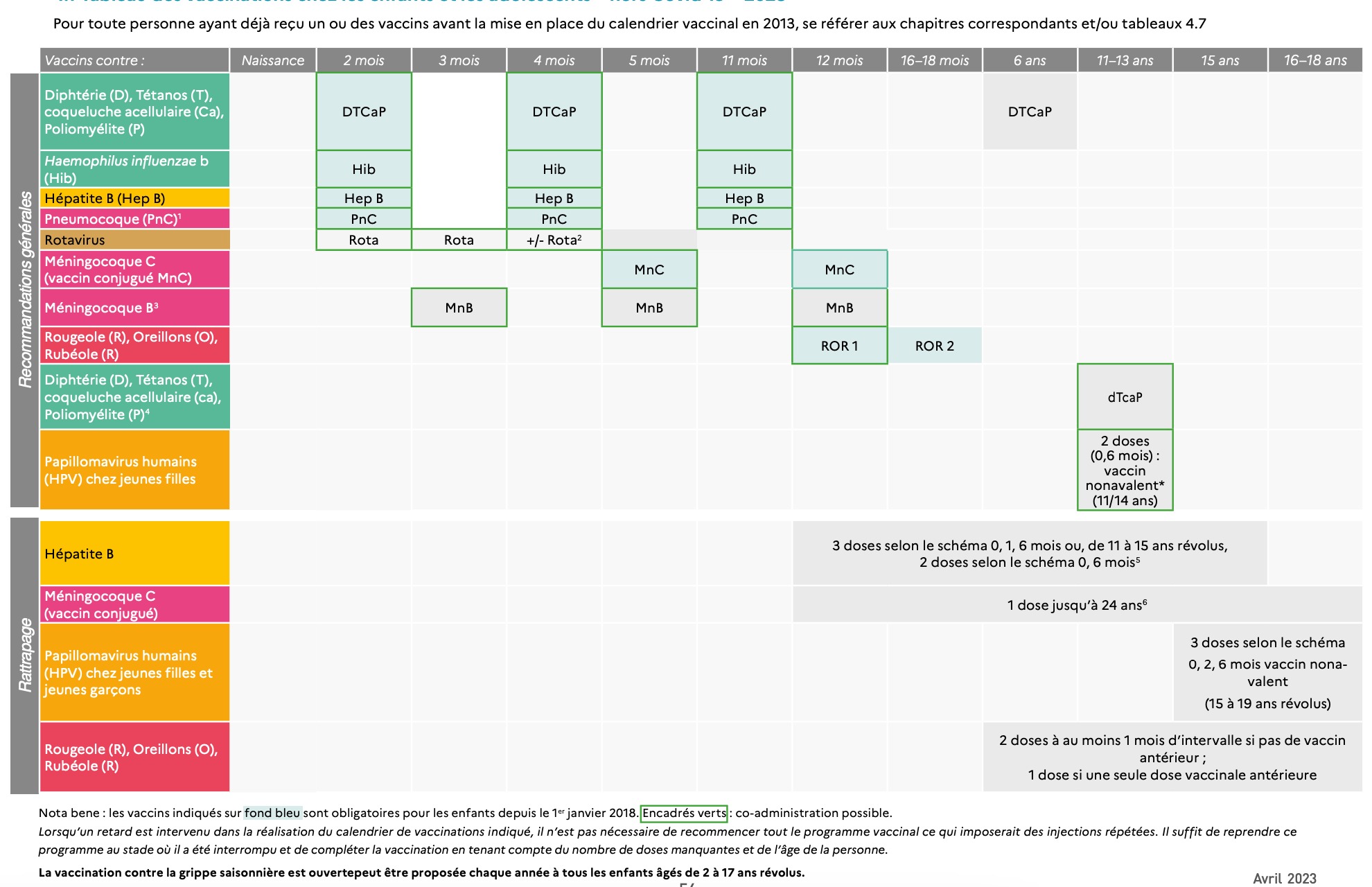Published on
Updated
Reading 2 mins.
The new edition of the vaccination schedule was published on Wednesday April 12, 2023. Among the new recommendations, the vaccine against the virus that causes gastroenteritis is again recommended for infants.
The Ministry of Health has just published its vaccination calendar for 2023. A calendar which takes up the recommendations already known, but is embellished with some modifications and novelties to be aware of.
Rotavirus vaccine returns for babies under 6 months
“Rotavirus vaccination is now recommended for all infants,” announced the Ministry of Health. This announcement implements a recommendation made last summer by the High Authority for Health (HAS) in favor of the vaccination of toddlers against rotavirus infections, the main causes of acute winter viral gastroenteritis. The recommendation is for infants six weeks to six months.
This vaccination had already been recommended in the early 2010s but the measure was suspended in 2015, after the occurrence of serious adverse effects. Seven years later, the HAS concluded that the vaccine was effective and well tolerated, stressing that no “signal” of safety had not been observed for years”.
Seasonal flu vaccine open to teens
Another novelty, the health authorities recommend “that vaccination against seasonal influenza be integrated into the vaccination schedule to be offered each year to children without comorbidities aged 2 to 17 years old, without making it compulsory”.
The campaign against the papillomavirus for all 5th graders
As agreed last February, the ministry also recommends that young girls and boys aged 11 to 14 get vaccinated against papillomaviruses. These infections are responsible each year for more than 6,000 cancers, particularly of the uterus. Vaccination will be generalized and organized for all 5th grade volunteer students from the start of the school year in September 2023.
Covid and Mpox vaccination: recommendations set to evolve
Regarding the recommendations on vaccination against Covid or monkeypox, the Ministry of Health announces that the recommendations could change and recommends that health professionals regularly monitor the state of the situation. In addition, since March 30, the vaccination of caregivers is no longer compulsory.
Vaccinating falls within the competence of several professions
This year, the prescription and administration of vaccines are no longer reserved for doctors alone. Competence is also open to other professions: community pharmacists, nurses, pharmacies for outdoor use and medical biology laboratories. 3rd year medical and pharmacy students can also perform these injections, as can midwives on the general population.
Eleven vaccines remain compulsory in the first 18 months of the child
However, the baby’s vaccination schedule remains unchanged.
- A single product immunizes children against diphtheria, tetanus, pertussis, poliomyelitis, Haemophilus influenzae type b infections and hepatitis B.
- Vaccination is done in two injections in infants, at two months and four months, followed by a booster at the age of 11 months.
- The vaccination schedule is the same for pneumococcal infections.
- Vaccination against measles, mumps and rubella is done at 12 months with a first injection, followed by a second between 16 and 18 months.
- Finally, to fight against invasive meningococcal infections (meningitis), a dose of vaccine is recommended for infants aged five months and then at 12 months.
- A twelfth compulsory vaccine is added to this list, only for residents of Guyana, with an injection against yellow fever, to be done from 12 months.
Find all the details of the vaccination schedule in our dedicated and updated article.


